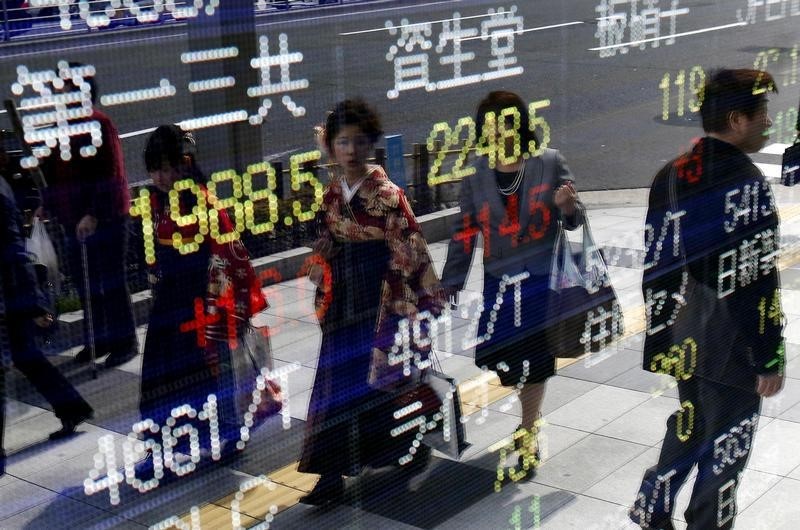Investing.com - Asian markets fell, and Japanese stocks dropped deeper into a bear market in morning trade on Friday after another sell-off on Wall Street overnight.
The Nikkei 225 slumped 1.6% by 10:00 PM ET (03:00 GMT). Official data showed Japan’s annual core consumer inflation rose 0.9% year-on-year in November, slowing from a 1.0% gain in October and compared with the expectation for a 1.0% increase.
In China, the Shanghai Composite and the Shenzhen Component fell 1.0% and 1.2%. Hong Kong’s Hang Seng Index slipped 0.2%.
The tension between China and the U.S. returned to focus following reports that the U.S. Department of Justice charged two Chinese nationals on Thursday for participating in a global hacking campaign.
The two individuals, Zhu Hua and Zhang Shilong, were accused of conspiring to commit computer intrusions and wire fraud, as well as aggravated identity theft, according to reports.
"China will find it difficult to pretend that it is not responsible for this action," Deputy Attorney General Rod Rosenstein said at a press conference.
Elsewhere, South Korea’s KOSPI declined 0.2%. Down under, Australia’s ASX traded 0.8% lower.
Overnight, the Dow and Nasdaq posted their lowest closes since October 2017, while the S&P 500 finished at its lowest level since September 2017.
Reports that U.S. President Donald Trump would not sign a temporary government funding resolution were cited as the catalyst for the selling. The resignation of Defence Secretary James Mattis over disagreements with Trump was also cited as a headwind for equities.
The U.S. Fed took the target range for its benchmark fund rate to 2.25-2.5% on Wednesday. It reduced its 2019 median forecast for interest rates to 2.9% from a previous estimate of 3.1%, hinting at two rates hikes in 2019. That's below the three rate hikes previously indicated in the Fed's September projections.
